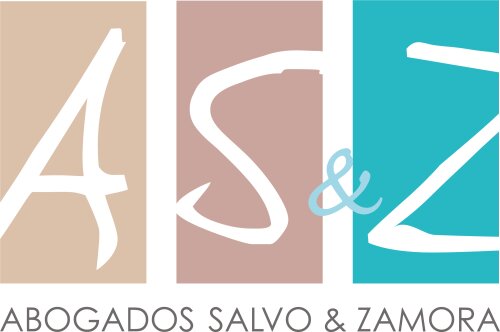Best International Trade Law Lawyers in Valparaíso
Share your needs with us, get contacted by law firms.
Free. Takes 2 min.
List of the best lawyers in Valparaíso, Chile
About International Trade Law Law in Valparaíso, Chile:
International trade law in Valparaíso operates at the intersection of national regulation, international treaties, and port and maritime practices. Valparaíso is one of Chiles main ports and a hub for exports and imports along the Pacific coast. Legal issues that arise here reflect Chiles broader trade regime - a combination of customs rules, free trade agreements, sanitary and technical standards, maritime and port regulations, and tax and foreign investment rules - as applied in a local port and commercial context. For businesses and individuals working with cross-border shipments, import-export contracts, shipping disputes, or regulatory compliance, Valparaíso presents both opportunities and regulatory obligations that are best navigated with clear legal guidance.
Why You May Need a Lawyer:
There are many moments in an international trade transaction when legal advice is important or essential. A lawyer can help you prevent problems, reduce costs, and resolve disputes. Common situations include:
- Import or export compliance issues - ensuring correct tariff classification, customs valuation, and payment of duties and taxes.
- Disputes with carriers, freight forwarders, or terminal operators - including damage to goods, delays, demurrage, or incorrect bills of lading.
- Contract drafting and negotiation - sales contracts, distribution agreements, agency and representation agreements, letters of credit and payment guarantees.
- Sanitary, phytosanitary and technical regulation problems - meeting product standards, obtaining permits and certificates, and responding to inspections or detentions.
- Anti-dumping, countervailing or safeguard investigations - defending a companys interests or responding to investigations initiated by authorities or competitors.
- Customs audits and administrative appeals - challenging assessments, penalties or seizures, and navigating procedural deadlines.
- Foreign investment and corporate set-up - establishing a branch, subsidiary, or representative office in Chile and complying with investment and tax rules.
- Intellectual property protection and enforcement in cross-border trade - preventing counterfeiting and enforcing trademarks at the border.
- Dispute resolution - choosing between litigation in Chilean courts, arbitration, or mediation and handling enforcement of foreign judgments or awards.
Local Laws Overview:
Understanding the local legal landscape helps to identify the legal steps you must take. Key aspects relevant to international trade in Valparaíso include:
- Customs regulation and administration - Chile administers customs under national customs legislation and regulations enforced by the National Customs Service. Customs procedures cover classification, valuation, origin, and suspension regimes, and there are specific procedural rules for import and export declarations, inspections, and appeals.
- Free trade agreements and international commitments - Chile is a party to numerous free trade agreements and is a member of the World Trade Organization. These agreements set rules on tariffs, rules of origin, trade facilitation, and dispute settlement, and they shape how customs and trade measures are applied.
- Tariffs, taxes and exemptions - imports are subject to customs duties, value-added tax and sometimes special taxes. Certain regimes and authorizations can reduce or suspend duties for temporary imports, processing, or free-zone operations.
- Sanitary, phytosanitary and technical standards - animal, plant and food products are controlled by specialized authorities. Technical standards and conformity assessment requirements apply to manufactured goods. These rules can affect admissibility of products, labelling and required certifications.
- Maritime and port regulation - port operations, terminal concessions and maritime transport are governed by port authorities and maritime law. The Empresa Portuaria Valparaíso and port concessionaires operate under regulatory frameworks that affect cargo handling, storage, and liability at the port.
- Trade remedy and competition law - Chile implements anti-dumping and countervailing procedures, as well as safeguard measures. Competition rules and anti-competitive conduct laws can also affect distribution and pricing practices.
- Foreign investment and corporate law - establishing a presence in Chile requires compliance with company law, foreign investment rules and tax registration. Sectoral permissions may be necessary for some activities.
- Dispute resolution and procedural rules - commercial disputes may be brought in Chilean courts or resolved via arbitration. Chile is arbitration-friendly and recognizes international arbitral awards, with statutory procedural paths for enforcement.
Frequently Asked Questions:
What authority handles customs matters in Chile and in Valparaíso?
Customs matters are managed by the national customs authority. At the local level, customs officials operate at the port and customs offices in Valparaíso to administer import and export procedures, inspections and clearances. For practical purposes you will interact with local customs officials, terminal staff and logistics providers, but national customs law governs the processes and rights of appeal.
How do I know which tariff applies to my product?
Tariff classification is determined by the Harmonized System nomenclature together with Chiles tariff schedule. Classification can be complex and fact-specific - it depends on the product composition, use and presentation. A customs lawyer or broker can assist with classification advice, rulings and resolving disputes with customs.
What are rules of origin and why do they matter?
Rules of origin determine whether goods qualify for preferential tariff treatment under a free trade agreement. They look at where the goods were produced and whether sufficient manufacturing occurred in a partner country. Rules of origin affect duty rates, paperwork requirements and eligibility for origin certificates. Incorrect origin claims can lead to duty liabilities, fines and loss of preferences.
How do I challenge a customs assessment or seizure?
If you receive a customs assessment or your goods are seized, there are administrative remedies and appeal procedures. Time limits and procedural steps are strict. A specialist lawyer can file the appropriate administrative appeals, request judicial review when needed, and assist with technical documentation and negotiations with authorities.
What documents should I prepare for an initial consultation with a trade lawyer?
Bring key transaction documents and records - sales contracts, bills of lading, invoices, packing lists, certificates of origin, customs declarations, inspection reports, correspondence with customs or officials, and any notices or fines. Also prepare a clear timeline of events and a summary of the commercial relationship and desired outcome.
Do Chilean courts enforce foreign arbitral awards?
Yes. Chile is a party to the New York Convention, so foreign arbitral awards are generally enforceable in Chile under the statutory procedures. Enforcement requires a court application and compliance with procedural requirements, and a local lawyer can handle recognition and enforcement.
What role do port authorities and terminal operators play in disputes?
Port authorities and terminal operators manage cargo handling, storage, and access to port infrastructure. Disputes may involve liability for damage or delay, demurrage and detention charges, or breaches of terminal operating rules. Contracts of carriage and terminal rules often define responsibilities and complaint processes, so review these documents carefully with legal counsel.
How long does a typical customs dispute take to resolve?
Resolution times vary widely - simple administrative corrections may take weeks, while complex valuation, classification or anti-dumping matters can take months or years if appealed through administrative and judicial channels. Timely action and good documentation often shorten resolution time and reduce costs.
Can a foreign company set up operations in Valparaíso to manage trade activities?
Yes. Foreign companies commonly establish branches, subsidiaries or representative offices in Chile to manage sales, logistics and distribution. Each option has different tax and regulatory implications. A corporate and tax lawyer can advise on the best structure for your business model and assist with registrations and permits.
How much will legal assistance cost and how are fees typically charged?
Costs depend on the complexity of the matter, the lawyers experience and the fee arrangement. Common models include hourly rates, fixed fees for defined tasks, or success-fee arrangements for certain outcomes. Ask for a fee estimate, retainer requirements, and a written engagement letter that defines scope, deliverables and billing practices before you begin.
Additional Resources:
When seeking information or assistance, the following national and local bodies and organizations are useful to know - they provide regulatory oversight, technical standards, export promotion and local support for trade matters:
- Servicio Nacional de Aduanas - the national customs authority responsible for import-export controls and customs procedures.
- Subsecretaría de Relaciones Económicas Internacionales - government unit that coordinates trade policy and implementation of international agreements.
- Servicio Agrícola y Ganadero - authority responsible for sanitary, phytosanitary and animal and plant health controls for imports and exports.
- Servicio de Impuestos Internos - national tax authority that administers VAT and other tax issues related to trade.
- Instituto Nacional de Propiedad Industrial - handles intellectual property matters relevant to international trade.
- Instituto Nacional de Normalización - develops technical standards and conformity assessment frameworks.
- Empresa Portuaria Valparaíso - port authority and concession oversight body for Valparaíso port operations.
- ProChile - export promotion agency that assists exporters with market information and export procedures.
- Chamber of Commerce and local business associations - offer local networks, mediation services and practical guidance for businesses operating in Valparaíso.
- Local bar association - Ilustre Colegio de Abogados de Valparaíso - a resource to confirm lawyer credentials and find local counsel.
Next Steps:
If you need legal assistance in international trade law in Valparaíso, follow these practical steps:
- Gather documentation - collect contracts, shipping documents, customs declarations, correspondence and any official notices. A clear file saves time and reduces legal costs.
- Identify the issue - is it compliance, a dispute, a regulatory denial, or a transactional need? Defining the problem helps match you with the right specialist.
- Seek a specialist - choose a lawyer or firm with experience in customs law, maritime and transport law, trade remedies and the relevant regulatory bodies. If your case involves foreign law or export markets, prioritize practitioners with cross-border experience or international networks.
- Ask key questions up front - confirm experience, language capabilities, expected timelines, fee structure and scope of services. Request an engagement letter that sets out the agreement in writing.
- Consider alternate dispute resolution - mediation or arbitration can be faster and more business-friendly than court litigation. Discuss options with your lawyer.
- Stay proactive - compliance changes, new inspections, audits and deadlines may require immediate action. Early legal engagement often prevents escalation and preserves commercial relationships.
Consulting a qualified trade lawyer in Valparaíso will help you interpret the rules that apply to your operations, reduce the risk of penalties and delays, and position your business to make the most of Chiles trade agreements and port infrastructure. If youre unsure where to start, contact a local law firm with international trade expertise or your local business chamber for referrals.
Lawzana helps you find the best lawyers and law firms in Valparaíso through a curated and pre-screened list of qualified legal professionals. Our platform offers rankings and detailed profiles of attorneys and law firms, allowing you to compare based on practice areas, including International Trade Law, experience, and client feedback.
Each profile includes a description of the firm's areas of practice, client reviews, team members and partners, year of establishment, spoken languages, office locations, contact information, social media presence, and any published articles or resources. Most firms on our platform speak English and are experienced in both local and international legal matters.
Get a quote from top-rated law firms in Valparaíso, Chile — quickly, securely, and without unnecessary hassle.
Disclaimer:
The information provided on this page is for general informational purposes only and does not constitute legal advice. While we strive to ensure the accuracy and relevance of the content, legal information may change over time, and interpretations of the law can vary. You should always consult with a qualified legal professional for advice specific to your situation.
We disclaim all liability for actions taken or not taken based on the content of this page. If you believe any information is incorrect or outdated, please contact us, and we will review and update it where appropriate.









